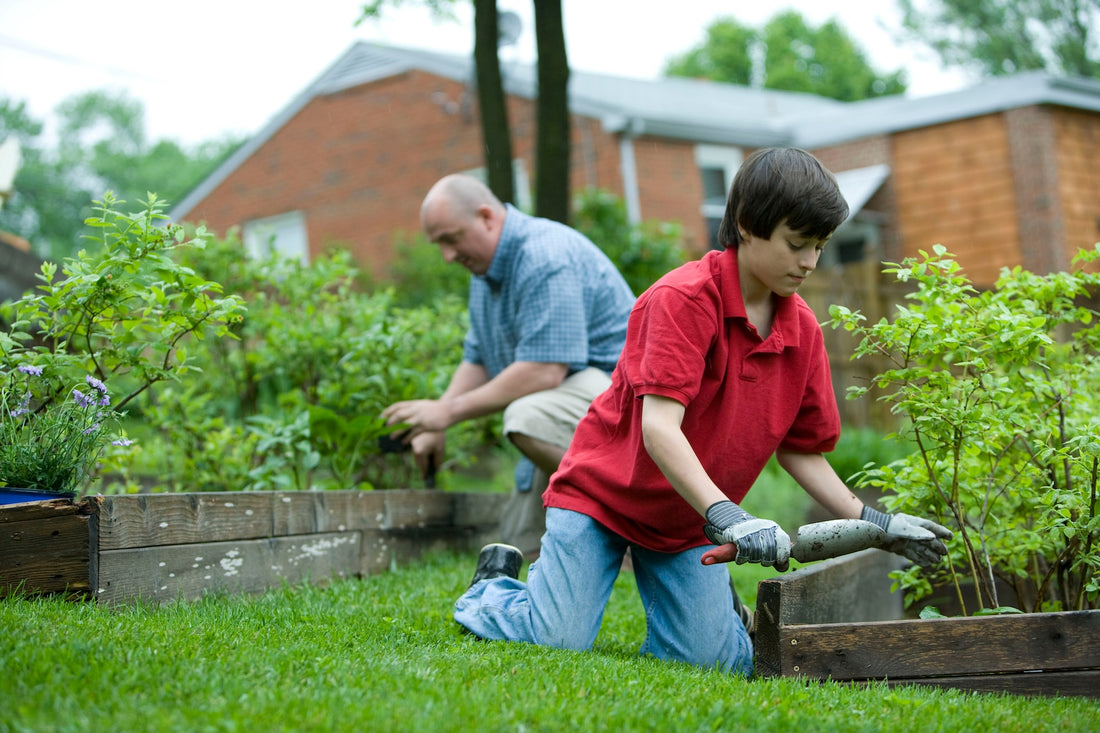Fertilizing is a crucial step in the gardening process that can make all the difference in the success of your harvest. But with so many options and techniques available, it can be overwhelming to know where to begin.
In this article, we'll explore the best garden fertilizing techniques to ensure your plants receive all the nutrients they need to thrive. From understanding the different types of fertilizers to learning how to properly apply them, we'll guide you through every step of the process.
The Importance of Fertilizing Your Garden
Fertilizing is an essential step in ensuring a healthy and thriving garden. Plants require a variety of nutrients to grow, including nitrogen, phosphorus, and potassium. These nutrients help plants develop strong roots, vibrant foliage, and bountiful blooms or fruit. Without proper fertilization, your plants may struggle to get the nutrients they need, leading to stunted growth, yellowing leaves, and poor yields.
But fertilizing isn't just about providing your plants with the nutrients they need. It's also about maintaining the health of your soil. Over time, soil can become depleted of nutrients, making it more difficult for plants to grow. Fertilizing helps replenish these nutrients, ensuring that your soil remains healthy and fertile year after year.
Understanding the Different Types of Fertilizers
When it comes to fertilizing your garden, there are two main types of fertilizers to choose from: organic and synthetic. Organic fertilizers are made from natural materials such as compost, manure, or bone meal. Synthetic fertilizers, on the other hand, are made from chemical compounds.
Both types of fertilizers have their advantages and disadvantages. Organic fertilizers are often more sustainable and environmentally friendly, as they are made from natural materials and don't contain harmful chemicals. They also tend to release nutrients slowly, providing a steady source of nutrition for your plants. However, organic fertilizers can be more expensive and may not provide as much immediate results as synthetic fertilizers.
Synthetic fertilizers, on the other hand, are often less expensive and provide quick results. They are also easier to apply and can be tailored to specific nutrient deficiencies. However, synthetic fertilizers can be harmful to the environment if not used properly, as they can run off into nearby water sources and cause pollution.
Organic vs. Synthetic Fertilizers
Deciding between organic and synthetic fertilizers ultimately comes down to personal preference and the specific needs of your garden. If you're looking for a more sustainable and environmentally friendly option, organic fertilizers may be the way to go. If you need quick results or are dealing with a specific nutrient deficiency, synthetic fertilizers may be a better choice.
It's also worth noting that you don't necessarily have to choose between organic and synthetic fertilizers. Many gardeners use a combination of both, using organic fertilizers to maintain soil health and synthetic fertilizers to provide a quick boost of nutrients when needed.
How to Test Your Soil for Nutrient Deficiencies
Before you begin fertilizing your garden, it's important to know what nutrients your soil may be lacking. This can be determined by conducting a soil test. Soil tests are relatively inexpensive and can be done through your local agricultural extension office or with a home testing kit.
Soil tests will typically identify the levels of nitrogen, phosphorus, and potassium in your soil, as well as the pH level. This information can help you determine what type of fertilizer to use and how much to apply.
Timing Your Fertilizer Application
Timing is an important factor to consider when fertilizing your garden. Different plants have different nutrient needs at different stages of growth. For example, plants that produce fruit (such as tomatoes or peppers) may require more potassium during the fruiting stage.
In general, it's best to fertilize your garden in the spring before planting, and then again mid-season. However, the specific timing will depend on the needs of your plants and the type of fertilizer you're using.
Fertilizing Techniques for Specific Types of Plants
Different types of plants may require different fertilizing techniques. Here are some tips for fertilizing specific types of plants:
Flowers: Most flowering plants benefit from a balanced fertilizer (one that contains equal amounts of nitrogen, phosphorus, and potassium). However, some flowering plants (such as roses) may benefit from a fertilizer that is higher in phosphorus.
Vegetables: Vegetables require a lot of nutrients to grow, so it's important to fertilize them regularly. A fertilizer high in nitrogen is typically recommended for vegetables.
Fruit trees: Fruit trees may require a fertilizer that is higher in potassium, especially during the fruiting stage.
Common Fertilizing Mistakes to Avoid
While fertilizing can be a great way to boost the health and productivity of your garden, there are some common mistakes that can be harmful to your plants.
- Over-fertilizing: Applying too much fertilizer can lead to burning and even death of your plants.
- Under-fertilizing: Not providing enough nutrients can lead to poor growth and low yields.
- Fertilizing at the wrong time: Applying fertilizer too early or too late can be ineffective or even harmful to your plants.
- Using the wrong type of fertilizer: Using a fertilizer that doesn't match the specific needs of your plants can be ineffective or harmful.
Natural Alternatives to Traditional Fertilizers
If you're looking for a more natural or sustainable approach to fertilizing your garden, there are several alternatives to traditional fertilizers. Here are a few to consider:
Compost: Compost is a natural fertilizer that can be made from organic materials such as leaves, grass clippings, and food waste.
Manure: Animal manure is a nutrient-rich fertilizer that can be used to improve soil health.
Fish emulsion: Fish emulsion is a natural fertilizer made from fish byproducts. It is high in nitrogen and can be used to promote leafy growth.
By understanding the different types of fertilizers, testing your soil for nutrient deficiencies, and following best practices for application, you can ensure that your plants receive all the nutrients they need to thrive. Whether you choose organic or synthetic fertilizers, or a combination of both, the key is to provide your plants with the nutrients they need at the right time.



